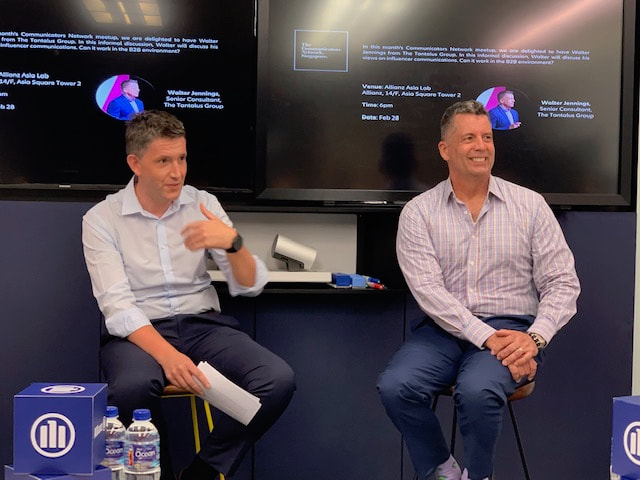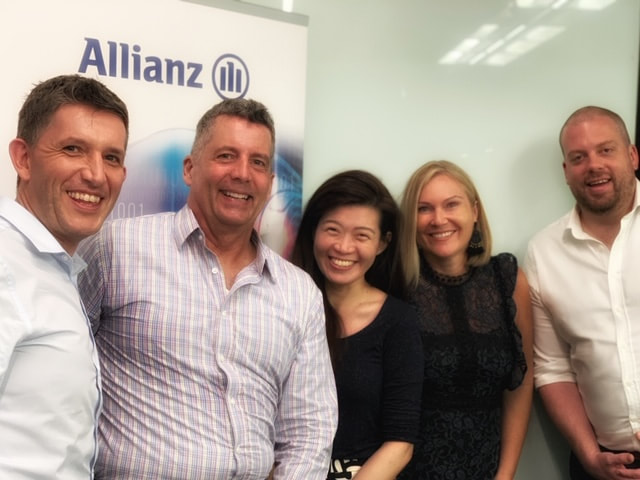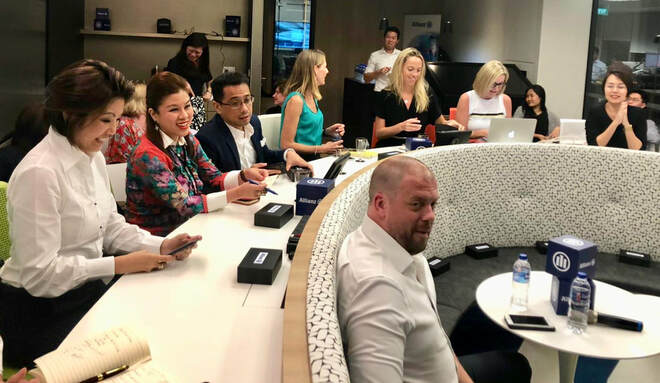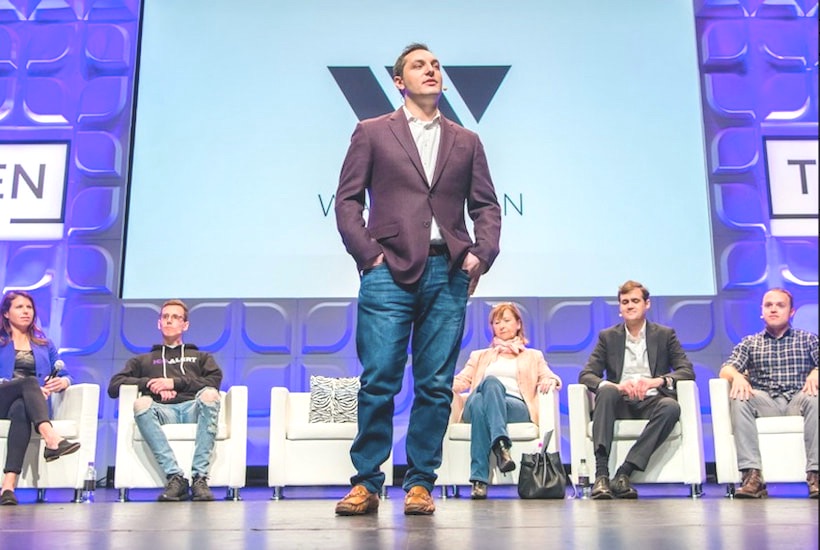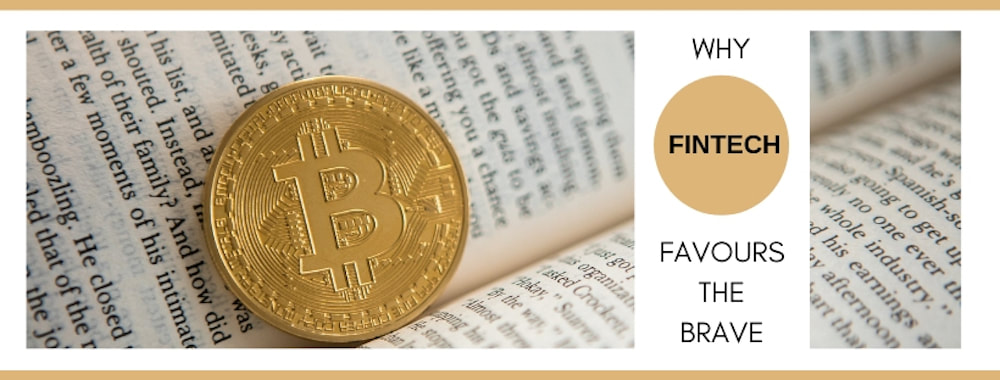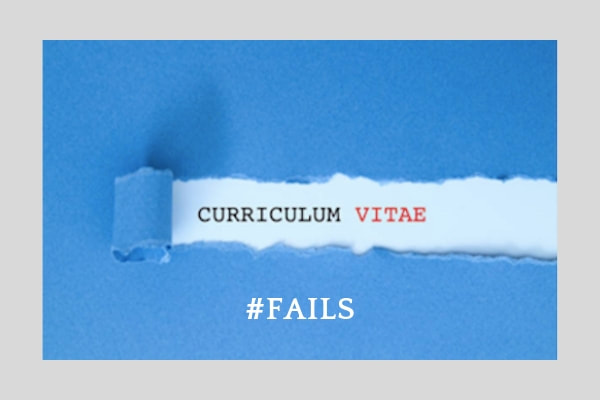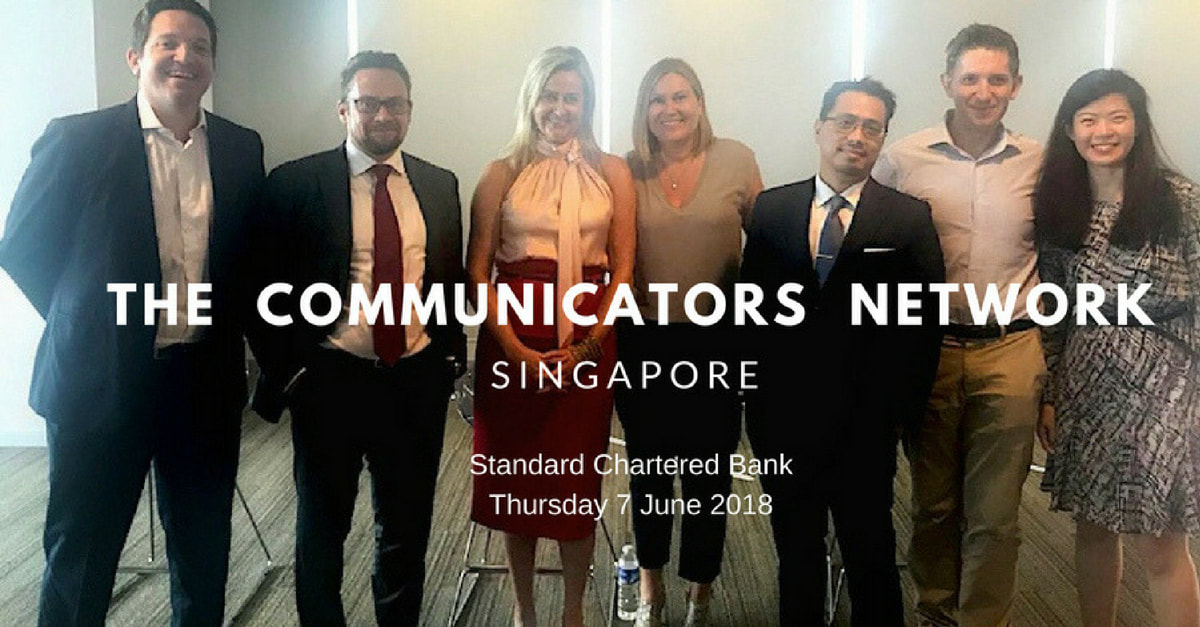Brandwagon Communications and Marketing At Work Report
Your browser does not support viewing this document. Click here to download the document.
|
A sincere thank you to our community for taking part in our recent Brandwagon Communications & Marketing at Work Survey. The survey was designed to measure the sentiment in the Singapore market and to measure how you and your businesses are being affected by this current economic and humanitarian crisis.
Please see the results of the survey attached. I wish you all the best of luck in navigating your business through these unprecedented times, and hope the impact of this pandemic on you and your family and work colleagues is as minimal as possible. Take care of yourself. Dee An evening with Walter Jennings
|
|
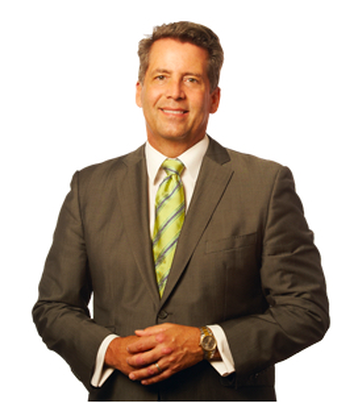
Headlines appeared around the world before Christmas when Meng Wanzhou, a top executive at China's Huawei Technologies (and daughter of the founder and CEO) was arrested in Canada, raising fears that a truce in the United States-China trade war could come to a swift end.
There are few private companies whose activities threaten such critical global and economic relations, but Huawei always appears top of the list. So the opportunity to spend an evening with Walter Jennings, former VP of Corporate Communications at Huawei, was a perfect occasion for the latest gathering of the Communicators Network here in Singapore. We were hosted in great style by May Kek, Head of Corporate Comms at Allianz in their very cool Asia Lab for a rare opportunity to hear about the world of Corporate Comms at the world's largest supplier of telecommunications network equipment and second-biggest maker of smartphones with (revenues last year of about US$92 billion)
On this occasion, Jennings was in town wearing his new hat as a Senior Consultant with The Tantalus Group, a global management consulting group, who recently appointed Walter to their Asia team as the firm’s leading expert on International Key Opinion Leaders and Influencer Relations for corporate reputation.
There are few private companies whose activities threaten such critical global and economic relations, but Huawei always appears top of the list. So the opportunity to spend an evening with Walter Jennings, former VP of Corporate Communications at Huawei, was a perfect occasion for the latest gathering of the Communicators Network here in Singapore. We were hosted in great style by May Kek, Head of Corporate Comms at Allianz in their very cool Asia Lab for a rare opportunity to hear about the world of Corporate Comms at the world's largest supplier of telecommunications network equipment and second-biggest maker of smartphones with (revenues last year of about US$92 billion)
On this occasion, Jennings was in town wearing his new hat as a Senior Consultant with The Tantalus Group, a global management consulting group, who recently appointed Walter to their Asia team as the firm’s leading expert on International Key Opinion Leaders and Influencer Relations for corporate reputation.
Jennings's legacy at Huawei is in successfully opening up a space for the company to engage and influence key opinion leaders who have large, relevant audiences on social media. He identified a gap in their comms strategy which was focused on the traditional communities in media, government and analysts, all of whom were well served by existing channels. Specifically, he was after the influential outliers, from leading academics and NGOs to tech experts and strategy commentators who didn't quite fit into the normal comms 'buckets'. His focus was on building an Influencer Programme to engage with International rather than Chinese observers and commentators, and most of this community had had no previous contact with Huawei.
This was a very targeted new approach for the company; Jennings first honed in on topics that were key to Huawei, observing hashtags and noting the loudest and most respected commentators who themselves had large followings. He created a target list of over 200 such people that the company wanted to build relationships with across 21 countries. By directly contacting these individuals with an invitation to "come inside", he provided access to Huawei's top execs, latest innovations and product plans, As objective, curious observers rather than customers or prospects of the company, particularly in their massive wholesale/carrier and enterprise divisions (consumer sector wasn't his focus), he hit the bulls-eye in triggering their interest. Who would decline an invitation to attend the biggest tech events in the world, like the Mobile World Congress, with VIP access to the leadership of the most controversial company on the planet? Practically no-one. Thus began the process of engaging with hitherto neglected but vital voices in the Twitter-sphere.
This was a very targeted new approach for the company; Jennings first honed in on topics that were key to Huawei, observing hashtags and noting the loudest and most respected commentators who themselves had large followings. He created a target list of over 200 such people that the company wanted to build relationships with across 21 countries. By directly contacting these individuals with an invitation to "come inside", he provided access to Huawei's top execs, latest innovations and product plans, As objective, curious observers rather than customers or prospects of the company, particularly in their massive wholesale/carrier and enterprise divisions (consumer sector wasn't his focus), he hit the bulls-eye in triggering their interest. Who would decline an invitation to attend the biggest tech events in the world, like the Mobile World Congress, with VIP access to the leadership of the most controversial company on the planet? Practically no-one. Thus began the process of engaging with hitherto neglected but vital voices in the Twitter-sphere.
One by one, Huawei began to build influence-by-stealth. Initially reticent by media, analyst and corporate relations peers quickly saw the impact and engagement Jennings could build for Huawei on social media, and came on board when appropriate to ensure alignment of announcements and launches.
This led to a big question last night about measuring the impact of such influencer communications, when other teams operate under stringent measure-or-die principles, especially when it's an unproven programme. Jennings accepted this was pretty difficult as there are no established metrics to assess the results of what his budget actually delivers, especially when much of the output is rooted in social media - engagements and impressions don't tell an accurate story in this type of program, when you consider other on and offline doors that often open well after a tweet's been posted. However, Huawei supported Jennings's initiative, despite the challenge in demonstrating hard results because they fundamentally understand and play the long game. It was fascinating to hear that Huawei doesn't think in terms of quarters or annual results - the company operates on 25 year plans and strategies, so it wasn't surprising to hear this program was embraced as one such long-term play to build reputation with a relatively small but discreet and powerful community.
One case in point is Professor Kevin Curran, one of the world's foremost experts on cyber security; from zero to full-on, he's a good example of a widely respected influencer who has slowly become an important on/offline voice for the company in amplifying their message on the back of Jenning's Influencer Programme. As an independent commentator, content by Professor Curran helps offset some of Huawei's ongoing negative PR as a cyber risk at a time when telcos and governments are debating their 5G networks which are core to their innovation offering.
This led to a big question last night about measuring the impact of such influencer communications, when other teams operate under stringent measure-or-die principles, especially when it's an unproven programme. Jennings accepted this was pretty difficult as there are no established metrics to assess the results of what his budget actually delivers, especially when much of the output is rooted in social media - engagements and impressions don't tell an accurate story in this type of program, when you consider other on and offline doors that often open well after a tweet's been posted. However, Huawei supported Jennings's initiative, despite the challenge in demonstrating hard results because they fundamentally understand and play the long game. It was fascinating to hear that Huawei doesn't think in terms of quarters or annual results - the company operates on 25 year plans and strategies, so it wasn't surprising to hear this program was embraced as one such long-term play to build reputation with a relatively small but discreet and powerful community.
One case in point is Professor Kevin Curran, one of the world's foremost experts on cyber security; from zero to full-on, he's a good example of a widely respected influencer who has slowly become an important on/offline voice for the company in amplifying their message on the back of Jenning's Influencer Programme. As an independent commentator, content by Professor Curran helps offset some of Huawei's ongoing negative PR as a cyber risk at a time when telcos and governments are debating their 5G networks which are core to their innovation offering.
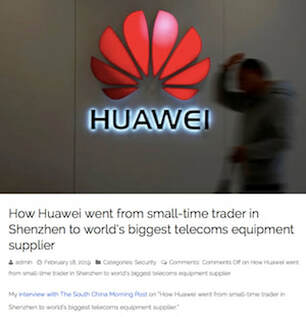
This in-depth coverage in the South China Morning Post last week is a perfect example of the rewards for nurturing the outliers and includes commentary from Prof. Curran on his recent advice to company execs on how to tackle security concerns in the West. This appeared in the SCMP's Big Tech column, both online and in print and was subsequently tweeted widely by political and industry watchers.
Curran also tweets regularly about the company to his near-50K followers.
How so companies put a value on this type of content, multiplied by 200+ similarly well reputed industry commentators?
In terms of the inevitable pay-back, the audience last night was keen to know what Huawei expected by way of return once all the wining and dining and trips were over. Nobody in the Influencer Programme received payment for covering the company, nor was there an agreement that coverage should be positive. Jennings did, however, have a few ground rules, including fact checking content and the opportunity for the company to provide their side of the coin if content was critical. Input, rather than influence (as only comms people can understand!). For a large event, it was generally agreed that one long form piece of around 1200 words would be published, but other than that, each person was free to comment publicly as they wished. Huawei provided content opportunities to this audience who, like any serious blogger or Twitter activist is perpetually looking for good angles from companies that can be more challenging to access, beyond the Press Room.
The event was great fun and a truly interesting evening, with the questions continuing to come even after the thanks and applause.
MC-ed with great panache by Tim Williamson (MD, Financial Services Practice at Watatawa) and supported by our fellow Communicators Network Trojan horse, John McGuinness (Associate Communications Director at Baker McKenzie), Brandwagon is really delighted to be a core part of this network because we get to bring great people together for these informal, engaging conversations. Walter was especially open and generous in sharing about his time at Huawei and for that, everyone was very grateful.
The Communicators Network is a group of in-house comms folks who meet once a quarter to trade news and share experience and insights from the industry. Please get in touch if you're interested in coming along to our next event.
MC-ed with great panache by Tim Williamson (MD, Financial Services Practice at Watatawa) and supported by our fellow Communicators Network Trojan horse, John McGuinness (Associate Communications Director at Baker McKenzie), Brandwagon is really delighted to be a core part of this network because we get to bring great people together for these informal, engaging conversations. Walter was especially open and generous in sharing about his time at Huawei and for that, everyone was very grateful.
The Communicators Network is a group of in-house comms folks who meet once a quarter to trade news and share experience and insights from the industry. Please get in touch if you're interested in coming along to our next event.
Not Resolutions...They're Intentions!
This week, we asked some of our Brandwagon friends to tell us what they're aiming to do do more or less of in 2019 when it comes to work and office life (note the subtle absence of the words new year's reso....ok, you know what we mean). Lots of common ground here, but also a few unusual ones...Dorito addictions and 'walking' meetings make an appearance. Enjoy.

Lisa Ortner-Ghouze
Head of Marketing, South East Asia & Middle East at Fidelity International
1. Doubting myself
Despite 20+ years of working in financial services, I sometimes find myself doubting my skills and wondering whether I really have what it takes. I know this isn't a unique trait; studies show that women are less self-assured than men, so it’s a “real thing”, but to succeed, confidence matters as much as competence. So in 2019, I plan to catch myself when these self-doubts invade my brain and make a conscious effort to see them for what they are: BS.
2. Taking work worries home with me
This one is a biggy: I find it very hard to switch off and leave work at the office. Whatever challenges I face during the day, they follow me home and take up residence in my head all night, which makes me a terrible sleeper. And a very grumpy morning person. I admit I’ve not explored many recommended solutions like meditation, keeping a note pad by my bed to write down things that bother me. This year I plan to nip this habit in the bud and see a therapist; an impartial professional I can talk to about what’s on my mind and who can give me some fresh perspectives or tools that may help me find the off switch.
3. Being judgemental of working styles different to my own
I have been fortunate to work with career coaches throughout my professional life, but one thing I need to constantly remind myself of is: people have different work styles with pros and cons to all of them. On a rational level I know that the most effective teams are made up by different people with diverse, often complementary styles. Yet people who don't share my personal style can really wind me up (and sometimes, bring out my inner bitch). So I plan is to stop myself when I go down that burrow hole, take a step back and reframe how I’m viewing people….what can I learn from this person? What are they better at that could improve how I do things e.g. listening and not interrupting others, for starters. Let’s see how I go …
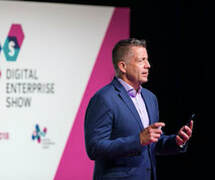
Walter Jennings
CEO, Asia Insight Circle
I used to make heroic, life-changing decisions as the seconds counted down to midnight on new year's eve. Today I'm more guarded. Wiser? Perhaps realistic. I know change isn't achieved radically, but instead through small increments.
1. Use Google's Smart Meetings
I've enabled "smart meetings" on Google calendar - meaning a 30 minute meeting only goes 25 minutes, or 50 minutes instead of an hour. Carving out small moments makes me feel more in control.
2. Chunking projects into blocks
I'm breaking my largest projects into smaller pieces and working on elements every day. I used to "put them off" until the deadline was on top of me. Getting the smallest parts done makes it less daunting.
3. Cutting myself a bit of slack
And finally? I'm being a little kinder to myself. I'm not going to get close to where I feel I should be, and that's okay. I'm kinder to others than I am to myself. I'm trying to be more self-accepting.
CEO, Asia Insight Circle
I used to make heroic, life-changing decisions as the seconds counted down to midnight on new year's eve. Today I'm more guarded. Wiser? Perhaps realistic. I know change isn't achieved radically, but instead through small increments.
1. Use Google's Smart Meetings
I've enabled "smart meetings" on Google calendar - meaning a 30 minute meeting only goes 25 minutes, or 50 minutes instead of an hour. Carving out small moments makes me feel more in control.
2. Chunking projects into blocks
I'm breaking my largest projects into smaller pieces and working on elements every day. I used to "put them off" until the deadline was on top of me. Getting the smallest parts done makes it less daunting.
3. Cutting myself a bit of slack
And finally? I'm being a little kinder to myself. I'm not going to get close to where I feel I should be, and that's okay. I'm kinder to others than I am to myself. I'm trying to be more self-accepting.
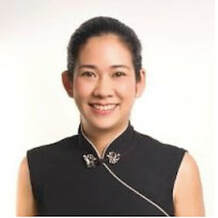
Vanessa Frida-David
Corporate Communications, ING Bank
1. Heading to work when unwell
I have learnt that this isn’t good for the team. Not only will I spread the virus to my team mates, it actually slows down my own recovery. Without proper rest, I end up being sick longer, and that hampers my productivity for a longer period. This year, I am going to dedicate at least four hours a week to exercising. Healthy body equals a healthy mind.
2. Reading emails the moment they enter my inbox
I tend to read emails the moment they land. And if it is an easy request, I tend to stall what I am currently working on to attend to the easy request to avoid backing-up my to-do list. It’s a false economy, because I realise it just takes me longer to complete the original task as I’ve lost train of thought.
3. Not taking a proper lunch break
I tend to speed through my lunch so that I can get back to my desk asap. I am now trying to set aside a 45 minute lunch break at least twice a week. No reading of work emails during lunch! Instead I’ll spend my time reading about things that are currently trendy or that interest me.
Corporate Communications, ING Bank
1. Heading to work when unwell
I have learnt that this isn’t good for the team. Not only will I spread the virus to my team mates, it actually slows down my own recovery. Without proper rest, I end up being sick longer, and that hampers my productivity for a longer period. This year, I am going to dedicate at least four hours a week to exercising. Healthy body equals a healthy mind.
2. Reading emails the moment they enter my inbox
I tend to read emails the moment they land. And if it is an easy request, I tend to stall what I am currently working on to attend to the easy request to avoid backing-up my to-do list. It’s a false economy, because I realise it just takes me longer to complete the original task as I’ve lost train of thought.
3. Not taking a proper lunch break
I tend to speed through my lunch so that I can get back to my desk asap. I am now trying to set aside a 45 minute lunch break at least twice a week. No reading of work emails during lunch! Instead I’ll spend my time reading about things that are currently trendy or that interest me.
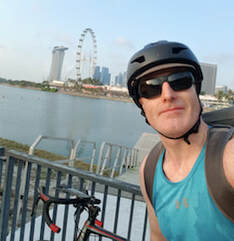
James Keady
Senior Vice President, Digital, Citibank APAC & EMEA
1. Learning to say no
It's my default...I say yes to everything without careful planning and understanding what the real priorities. This results in over commitment and dilution of impact and value, whether it's colleagues, family or even myself…in 2019 I’ll focus on priorities and say no to those things that are simply not important so I can do a better job at things that are.
2. Connected 24/7
It's a real problem that breaks my focus, it interrupts sleep and the ability to be present. Enjoying moments of thinking and reflection is something I'm focusing hard to do in 2019. I want to avoid the trap of waiting for the next email, news or Instagram update, and break the circuit of being continually wired for the next distraction.
3. Less screen time
Probably connected with the above point, but nearly all the content I consumed in 2018 was either screen (phone mainly) or sound (audible, podcasts etc.)…would like to break this habit too, attack the books that have been sitting on the shelf too long, the whitepapers on my desk at work, ring-fencing time for reading and reflection in 2019.
Senior Vice President, Digital, Citibank APAC & EMEA
1. Learning to say no
It's my default...I say yes to everything without careful planning and understanding what the real priorities. This results in over commitment and dilution of impact and value, whether it's colleagues, family or even myself…in 2019 I’ll focus on priorities and say no to those things that are simply not important so I can do a better job at things that are.
2. Connected 24/7
It's a real problem that breaks my focus, it interrupts sleep and the ability to be present. Enjoying moments of thinking and reflection is something I'm focusing hard to do in 2019. I want to avoid the trap of waiting for the next email, news or Instagram update, and break the circuit of being continually wired for the next distraction.
3. Less screen time
Probably connected with the above point, but nearly all the content I consumed in 2018 was either screen (phone mainly) or sound (audible, podcasts etc.)…would like to break this habit too, attack the books that have been sitting on the shelf too long, the whitepapers on my desk at work, ring-fencing time for reading and reflection in 2019.
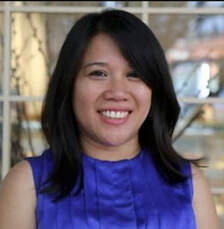
Timi Siytangco
Programme Director, The Splice Newsroom
1. A little liver TLC
I'm embracing cruciferous vegetables. It's a fancy term I learned from our family doctor that just means broccoli, cauliflower and other vegetables that look like them. They do good things for the liver. I figure since I will never stop drinking wine, I need to help my liver out as much as I can, and increasing the intake of my cruciferous friends each day is an easy step.
2. The terrible twins
Eating Doritos while bingeing on a Netflix show. This is probably going to be the hardest one to do. The combo is killer, but I've armed myself with the Headspace meditation app, which has a “Coping with Cravings" episode.
3. Farewell, Facebook
It's gone. I've deleted it. The Facebook app is banished from my iPhone and iPad. I’ve also turned on the Downtime feature in Screen Time. I've not missed it one bit (Facebook who?) and as a bonus it has given me back my morning routine.
Programme Director, The Splice Newsroom
1. A little liver TLC
I'm embracing cruciferous vegetables. It's a fancy term I learned from our family doctor that just means broccoli, cauliflower and other vegetables that look like them. They do good things for the liver. I figure since I will never stop drinking wine, I need to help my liver out as much as I can, and increasing the intake of my cruciferous friends each day is an easy step.
2. The terrible twins
Eating Doritos while bingeing on a Netflix show. This is probably going to be the hardest one to do. The combo is killer, but I've armed myself with the Headspace meditation app, which has a “Coping with Cravings" episode.
3. Farewell, Facebook
It's gone. I've deleted it. The Facebook app is banished from my iPhone and iPad. I’ve also turned on the Downtime feature in Screen Time. I've not missed it one bit (Facebook who?) and as a bonus it has given me back my morning routine.
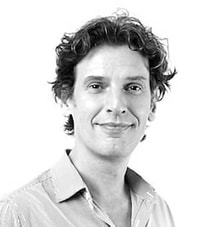
Bernice Klaassen
Head of Consumer Insights, Citibank APAC & EMEA
1. Do less, think more.
As Warren Buffett said: “It’s not a proxy of your seriousness that you fill every minute in your schedule”. We all know that there’s always more work to do and meetings to attend, but the reality is that our greatest contributions often come from reflection and hard thinking. So I want to carve out more time to reflect, think and strategize.
2. Rationalise communication channels
Email, texts, calls, meetings, conference calls, WhatsApp, Slack, yammer, messenger, skype – the number of communication channels in the workplace is mushrooming. This is increasingly inefficient and disrupting focus and attention. So: creating personal and team habits to rationalize the usage of all these channels – and to me, this is often about more in-person communication.
3. Move more, sit less
There’s an increasing body of academic evidence that sitting – in meetings, behind screens, in planes – is detrimental to our physical, and ultimately our mental wellbeing. So this year – more exercise, more walking meetings and any excuse to be more mobile in and outside the office.
Head of Consumer Insights, Citibank APAC & EMEA
1. Do less, think more.
As Warren Buffett said: “It’s not a proxy of your seriousness that you fill every minute in your schedule”. We all know that there’s always more work to do and meetings to attend, but the reality is that our greatest contributions often come from reflection and hard thinking. So I want to carve out more time to reflect, think and strategize.
2. Rationalise communication channels
Email, texts, calls, meetings, conference calls, WhatsApp, Slack, yammer, messenger, skype – the number of communication channels in the workplace is mushrooming. This is increasingly inefficient and disrupting focus and attention. So: creating personal and team habits to rationalize the usage of all these channels – and to me, this is often about more in-person communication.
3. Move more, sit less
There’s an increasing body of academic evidence that sitting – in meetings, behind screens, in planes – is detrimental to our physical, and ultimately our mental wellbeing. So this year – more exercise, more walking meetings and any excuse to be more mobile in and outside the office.
Below The Fold - David Wachsman, Founder & CEO, Wachsman
Described as one of the leading global communications advisors to fintech innovators, rising entrepreneurs and blockchain businesses, Wachsman recently opened its Asia hub here in Singapore. We had the privilege of getting to know veteran PR man, Founder and CEO, David Wachsman, on a recent visit when he came to spend time with his new team.
1. What is your current role, and why did you accept it? I am the Founder and CEO of Wachsman, a leading professional services firm in the blockchain industry. In just three years, I’ve represented and provided strategic guidance to more than 120 of the most promising blockchain projects in the world, and have overseen the expansion of the Wachsman umbrella to 110 employees across offices in New York City, Dublin, and Singapore.
When I first started the company in 2015, however, I was only a team of one, operating in a largely uncertain industry, with a vision that the technology behind it would one day change the world. Very early on, I realized that there was an untapped opportunity to provide communications support to emerging blockchain companies that were actively seeking professional services guidance. With a longstanding career in public relations, I resolved to make it my life’s work to help drive the industry’s evolving narrative, and advocate for its mainstream adoption on a global scale.
2. What would you say is the most interesting thing about you?
I never would have imagined that I would travel as much as I do now, but I’m proud to say that my passport is constantly in use. Blockchain is a technology that transcends borders — from innovation epicenters in Silicon Valley, to fintech hotspots in Dublin, to technology hubs in Singapore and South Korea. Consequently, I am constantly travelling to attend conferences, visit clients, and launch new regional headquarters. Admittedly, it can be difficult living out of a suitcase, however, I wouldn’t trade it for the world. I have witnessed so many extraordinary places in my lifetime, and I look forward to seeing what’s in store for me in the future.
3. What are you most proud of?
The opportunity to elevate Wachsman’s service offerings on the global blockchain stage has been one of the proudest achievements of my career. We recently announced our new Asia-Pacific headquarters in Singapore, which has allowed us to leverage one of the fastest-growing fintech hotspots in the world. I take great pride in having amassed a global team of top talent across a variety of different industries and practices areas — all who share the same passion for this disruptive technology. Moreover, with our new APAC office, we can now provide coverage across every time zone, which has been a goal of mine since starting the company in 2015.
4. Which one thing do you wish you’d done differently?The state of the blockchain industry is constantly changing. Faced with an increasingly saturated market, it can sometimes be difficult to adequately capitalize on every opportunity presented to you. As a result, I have inadvertently turned down the chance to work with emerging startups that have since become giants in the industry.
5. Who are your role models and mentors?
John Seifert, now Worldwide CEO of Ogilvy & Mather, made a substantial impression on me earlier in my professional career. I vividly remember being inspired by his natural leadership ability and the frequent demonstrations of his unmatched integrity. I learned a great deal from the way he carried himself as servant-leader and, as a result, I have always resolved to impart those values at Wachsman. We work everyday to keep a collaborative and courageous spirit intact.
6. What wouldn’t we learn about you from your resumé?
I’ve always been fascinated by the trajectory of human innovation. Even as a young child, learning and absorbing information was always my top prerogative. I subscribed to dozens of magazines and read volumes of books in an effort to broaden my understanding of the world. Very quickly, I amassed a breadth of knowledge in literature and history that has since served as the foundation for my decision-making. When it came time to start Wachsman in 2015, I benefited greatly from having an already pre-established passion for education. You’re never done learning.
7. What’s the best book you ever read?
As a fan of great literature, it’s difficult to select one book in particular — simply too many come to mind. However, I can say that having a deep-seeded love for the classics played a formative role in my personal and professional growth. Many of these authors lived hundreds of years ago, however, their stories continue to resonate today. Having a background in these works has provided me with what I believe is a broader perspective on the human condition, which I hope can make me a better leader as a result.
8. What’s the biggest risk you’ve ever taken?
In 2015, I started Wachsman with little more than a concept and a dream. I knew that leaving my full-time job would be a risk, but I trusted my gut instinct and embarked on a mission to help leading blockchain projects find success in this rapidly-evolving landscape. In hindsight, I can’t imagine what life would be like if I hadn’t taken this leap of faith. Don’t be afraid to take risks in your career. You’ll be stronger and more confident as a result.
9. What’s the most important factor when you’re hiring someone?
As with any company, relevant work experience is a vitally-important indicator for any prospective candidate. However, what’s perhaps more important is their drive and motivation for furthering the company’s overall mission. Each of our employees is an essential cog in the Wachsman wheel, and they must be able to learn and adapt quickly to rapid changes in the blockchain ecosystem. Their willingness to stay abreast of industry developments is what allows us to expand so quickly, while simultaneously providing high-quality service offerings to our growing client base.
10. What is your next milestone for Wachsman?
Wachsman’s story is only just beginning. As blockchain continues to permeate every industry, in every practice area, and in every region of the world, we will continue to find new and innovative ways to guide our clients through this evolving landscape. The blockchain revolution is well underway, and Wachsman is committed to driving the global industry by providing unparalleled service offerings to our clients and helping them grow. The sky is truly the limit.
* We're adding this interesting recent podcast interview with David from www.icoalert.com to give you a flavour of what he's all about and how he decided to focus his PR career on crypto and bitcoin.
1. What is your current role, and why did you accept it? I am the Founder and CEO of Wachsman, a leading professional services firm in the blockchain industry. In just three years, I’ve represented and provided strategic guidance to more than 120 of the most promising blockchain projects in the world, and have overseen the expansion of the Wachsman umbrella to 110 employees across offices in New York City, Dublin, and Singapore.
When I first started the company in 2015, however, I was only a team of one, operating in a largely uncertain industry, with a vision that the technology behind it would one day change the world. Very early on, I realized that there was an untapped opportunity to provide communications support to emerging blockchain companies that were actively seeking professional services guidance. With a longstanding career in public relations, I resolved to make it my life’s work to help drive the industry’s evolving narrative, and advocate for its mainstream adoption on a global scale.
2. What would you say is the most interesting thing about you?
I never would have imagined that I would travel as much as I do now, but I’m proud to say that my passport is constantly in use. Blockchain is a technology that transcends borders — from innovation epicenters in Silicon Valley, to fintech hotspots in Dublin, to technology hubs in Singapore and South Korea. Consequently, I am constantly travelling to attend conferences, visit clients, and launch new regional headquarters. Admittedly, it can be difficult living out of a suitcase, however, I wouldn’t trade it for the world. I have witnessed so many extraordinary places in my lifetime, and I look forward to seeing what’s in store for me in the future.
3. What are you most proud of?
The opportunity to elevate Wachsman’s service offerings on the global blockchain stage has been one of the proudest achievements of my career. We recently announced our new Asia-Pacific headquarters in Singapore, which has allowed us to leverage one of the fastest-growing fintech hotspots in the world. I take great pride in having amassed a global team of top talent across a variety of different industries and practices areas — all who share the same passion for this disruptive technology. Moreover, with our new APAC office, we can now provide coverage across every time zone, which has been a goal of mine since starting the company in 2015.
4. Which one thing do you wish you’d done differently?The state of the blockchain industry is constantly changing. Faced with an increasingly saturated market, it can sometimes be difficult to adequately capitalize on every opportunity presented to you. As a result, I have inadvertently turned down the chance to work with emerging startups that have since become giants in the industry.
5. Who are your role models and mentors?
John Seifert, now Worldwide CEO of Ogilvy & Mather, made a substantial impression on me earlier in my professional career. I vividly remember being inspired by his natural leadership ability and the frequent demonstrations of his unmatched integrity. I learned a great deal from the way he carried himself as servant-leader and, as a result, I have always resolved to impart those values at Wachsman. We work everyday to keep a collaborative and courageous spirit intact.
6. What wouldn’t we learn about you from your resumé?
I’ve always been fascinated by the trajectory of human innovation. Even as a young child, learning and absorbing information was always my top prerogative. I subscribed to dozens of magazines and read volumes of books in an effort to broaden my understanding of the world. Very quickly, I amassed a breadth of knowledge in literature and history that has since served as the foundation for my decision-making. When it came time to start Wachsman in 2015, I benefited greatly from having an already pre-established passion for education. You’re never done learning.
7. What’s the best book you ever read?
As a fan of great literature, it’s difficult to select one book in particular — simply too many come to mind. However, I can say that having a deep-seeded love for the classics played a formative role in my personal and professional growth. Many of these authors lived hundreds of years ago, however, their stories continue to resonate today. Having a background in these works has provided me with what I believe is a broader perspective on the human condition, which I hope can make me a better leader as a result.
8. What’s the biggest risk you’ve ever taken?
In 2015, I started Wachsman with little more than a concept and a dream. I knew that leaving my full-time job would be a risk, but I trusted my gut instinct and embarked on a mission to help leading blockchain projects find success in this rapidly-evolving landscape. In hindsight, I can’t imagine what life would be like if I hadn’t taken this leap of faith. Don’t be afraid to take risks in your career. You’ll be stronger and more confident as a result.
9. What’s the most important factor when you’re hiring someone?
As with any company, relevant work experience is a vitally-important indicator for any prospective candidate. However, what’s perhaps more important is their drive and motivation for furthering the company’s overall mission. Each of our employees is an essential cog in the Wachsman wheel, and they must be able to learn and adapt quickly to rapid changes in the blockchain ecosystem. Their willingness to stay abreast of industry developments is what allows us to expand so quickly, while simultaneously providing high-quality service offerings to our growing client base.
10. What is your next milestone for Wachsman?
Wachsman’s story is only just beginning. As blockchain continues to permeate every industry, in every practice area, and in every region of the world, we will continue to find new and innovative ways to guide our clients through this evolving landscape. The blockchain revolution is well underway, and Wachsman is committed to driving the global industry by providing unparalleled service offerings to our clients and helping them grow. The sky is truly the limit.
* We're adding this interesting recent podcast interview with David from www.icoalert.com to give you a flavour of what he's all about and how he decided to focus his PR career on crypto and bitcoin.
FinTech favours the brave in Comms and Marketing opportunities
Since our last newsletter, we’ve found ourselves steeped in FinTech with both in-house and agency clients demonstrating its increasing importance as an ‘all-grown-up’ communications specialism; until now, FinTech has been a bit of a catch-all, predominantly populated by financial services technology and payments companies leaning on agencies to build their brand with customers, media and investors. They’ve done a solid job, and in break-neck speed, we’ve come to make the likes of RedMart, AirBnB, Grab and Apple Pay a seamless part of daily life.
However, the more recent wave of FinTech, driven by cryptocurrencies like bitcoin and platforms like blockchain is now bringing us to a whole other level of complexity which may not yet feel as relevant, but it’s certainly keeping both start-ups and traditional corporates consumed - how to fund, build and replace all manner of financial services with low-touch digital alternatives, when and where to launch and what agencies to task with bringing these services to market. FinTech communications may be at the tail end of that long food chain, but it’s a booming niche, with all manner of communications consultancies and agencies reaping the benefits. We believe this specialism is primed to explode, providing professionals in media relations and thought leadership skills along with marketeers in analytics and insights with a host of new opportunities.
Many FinTech companies, particularly at the early stages of series A and B fundraising, outsource their PR and communications to agencies in order to remain focused on their core business - technology. But this playground is no longer just the domain of start-up; traditional bricks-and-mortar banks, real estate, healthcare, logistics and insurance companies are rapidly digitising their processes and introducing products underpinned by FinTech. This also creates additional demand for both in-house comms and marketing experts as well as agencies who have what it takes to convince and convert tightly targeted mainstream businesses and consumers onto this evolving, complex digital wagon.
So, the opportunities are there (we know, because we’ve got them!). That’s the good news but as we are finding, the talent, broadly speaking, is not. This is particularly true in the Asian market which is not yet mature enough to have produced a cohort of subject expert FinTech practitioners who understand this complex ecosystem. We spent a lot of time this year getting beneath the bonnet of the sector on behalf of FinTech clients; identifying strategic comms, PR and media relations talent who can speak and write with credibility about its products, its challenges and it’s future in SE Asia is difficult, for now. However, we’ve recruited many smart candidates who understand the opportunity and want to be a part of this new wave – these clever early movers are positioning themselves above the pack, thus securing themselves a strong future as “old PR” makes way for the savvy pros who are now called for in the digitally-driven economy of tomorrow.
In our experience, FinTech companies and agencies will generally provide specific training in new and emerging technologies and applications such as bitcoin and crypto for those who may be joining this arena. Candidate selection boils down to individual interest and attitude, being willing to roll up your sleeves and learn something new if you've not yet got the expertise. This makes crossing over from corporate or financial sectors to FinTech a compelling proposition for those willing to step out from the pack and differentiate themselves.
Opportunity favours the bold, so if you’re keen to know more, get in touch to discuss our opportunities.
However, the more recent wave of FinTech, driven by cryptocurrencies like bitcoin and platforms like blockchain is now bringing us to a whole other level of complexity which may not yet feel as relevant, but it’s certainly keeping both start-ups and traditional corporates consumed - how to fund, build and replace all manner of financial services with low-touch digital alternatives, when and where to launch and what agencies to task with bringing these services to market. FinTech communications may be at the tail end of that long food chain, but it’s a booming niche, with all manner of communications consultancies and agencies reaping the benefits. We believe this specialism is primed to explode, providing professionals in media relations and thought leadership skills along with marketeers in analytics and insights with a host of new opportunities.
Many FinTech companies, particularly at the early stages of series A and B fundraising, outsource their PR and communications to agencies in order to remain focused on their core business - technology. But this playground is no longer just the domain of start-up; traditional bricks-and-mortar banks, real estate, healthcare, logistics and insurance companies are rapidly digitising their processes and introducing products underpinned by FinTech. This also creates additional demand for both in-house comms and marketing experts as well as agencies who have what it takes to convince and convert tightly targeted mainstream businesses and consumers onto this evolving, complex digital wagon.
So, the opportunities are there (we know, because we’ve got them!). That’s the good news but as we are finding, the talent, broadly speaking, is not. This is particularly true in the Asian market which is not yet mature enough to have produced a cohort of subject expert FinTech practitioners who understand this complex ecosystem. We spent a lot of time this year getting beneath the bonnet of the sector on behalf of FinTech clients; identifying strategic comms, PR and media relations talent who can speak and write with credibility about its products, its challenges and it’s future in SE Asia is difficult, for now. However, we’ve recruited many smart candidates who understand the opportunity and want to be a part of this new wave – these clever early movers are positioning themselves above the pack, thus securing themselves a strong future as “old PR” makes way for the savvy pros who are now called for in the digitally-driven economy of tomorrow.
In our experience, FinTech companies and agencies will generally provide specific training in new and emerging technologies and applications such as bitcoin and crypto for those who may be joining this arena. Candidate selection boils down to individual interest and attitude, being willing to roll up your sleeves and learn something new if you've not yet got the expertise. This makes crossing over from corporate or financial sectors to FinTech a compelling proposition for those willing to step out from the pack and differentiate themselves.
Opportunity favours the bold, so if you’re keen to know more, get in touch to discuss our opportunities.
From egg freezing to Airbnb vouchers, benefits undergo a facelift
The late Steve Jobs often said that the pursuit of great talent was his #1 priority, advising business leaders, “Go after the cream of the cream. A small team of A+ players can run circles around a giant team of B and C players". To achieve this talent nirvana, our in-house and agency clients are finding they have to work hard on their own employer branding (or EVP - employment value proposition) to woo candidates in the current market. Competitive salaries alone are not sufficient anymore - we see many companies essentially marketing their own brand story to candidates from the very first interview by articulating and demonstrating a compelling "what-we-can-do-for-you" proposition.
Training (or lack of) is often cited by individuals as the main reason they come to us looking to explore a move to a more empowering employer, and organisations who provide robust skills development opportunities are a definite magnet. For example, an integrated consultancy client of ours in Singapore convincingly showcases its USP in technology training, an initiative taken specifically to attract younger talent. These are individuals who come into the company with limited skills in X, but who can anticipate having X+Y+Z within 18 months if they come on board. It's good stuff, and just one example of many variants of EVP we're seeing more of in the market; we know candidates place huge value on working for employers who bring life to the usual platitudes seen in company value statements (which are largely the same) by demonstrating, in real terms, just what this means. Training and professional development is one such tangible demonstration.
We hasten to add that this strategy doesn't need to be flashy; for example, one client holds an annual "Bring Your Folks To Work" evening, when staff and business leaders host parents in a relaxed and fun after-hours open house, allowing employees to get really hands-on and showcase what they do to their families (try explaining performance management to your 72 year old mother, and you'll see how impactful this kind of event can be!).
In terms of employee benefits, Asia continues to trail Europe and North America in terms of scale and creativity when it comes to contractual bells and whistles; think of egg freezing or free fertility treatments and how appealing this might be to the highly prized late-20's women working all hours in STEM companies. Just ask Spotify or many of the big tech companies about their success in attracting this pure gold demographic.
Alas, we may not see many in-house massage or childcare in Singapore or Hong Kong, but companies here are competing with more regionally-tuned propositions that align with recent market insights into what people value most in this region - extended family health and life insurance, more annual leave and longer paid maternity leave are really important here in APAC and many of our clients are now more frequently offering these benefits to successful candidates.
Earlier this month, one global consultancy client included access to the company holiday home in upstate New York as part of their benefits package, and for good measure, added an extra day's leave for our candidate's birthday. We even had one company gift an Airbnb voucher to a candidate as a 'welcome to the company' gesture. So, cool things are happening, albeit on a smaller scale, but we expect the bar will continue rise in 2019 as employers here embrace the intrinsic value of non-traditional benefits to bring the right people on board.
How not to write a bad resumé
We have an unprecedented number of great roles at the moment for both in-house and agency PR/integrated comms managers; these are organisations looking for solid candidates with 4-8 years of experience, and we're lucky to have a reservoir of superb talent to call on in filling these positions. One concern that tends to comes up in our office when considering candidates is the fact that CVs don't always showcase an individual's true abilities which often leaves us perplexed; we get to know candidates by phone and in person so we're familiar with their personalities and experience, yet we find many CVs don't necessarily translate the unique achievements and talents we know are there. For example, we were reviewing a healthy file of great applicants yesterday for a juicy regional, in-house comms role. We know these individuals, and any one of them would be great for the job. We also love this particular client, and his brief to us, along with the detailed job description, couldn’t have been better. All in all, a perfect JD that required little additional work on our part to attract a strong response from well qualified candidates.
So, when we sat down to assess the file, we anticipated smooth sailing towards our shortlist, but after a depressing hour of reading and re-reading, the penny dropped that most of our lovely applicants had in fact done little to understand this company or its needs. An hour later, we had but 2 people to introduce to our client, not because the remaining candidates were unsuitable but simply because they had made no effort to tell us why they were right for this role - they missed the true purpose of their CV which is to allow a candidate lay claim to a particular opportunity, in a way that makes it simple for the reader to easily reach that conclusion.
CVs are the workhorse of our industry. They allow us gain insight into a person’s entire professional history, assess skills and expertise, identify patterns and markers that enable us piece together who each individual is and what makes them unique or stand-out for role we’ve got (or ones we know are coming, for those who submit a CV on ‘spec’). Specific is the key word, and unless a candidate makes themselves clear to us, we have no business presenting him or her to our clients.
Google offers no less than 260,000,000 suggestions from millions of resumé experts who freely share templates and wisdom, but we've jotted down our Top Ten tips - as head hunters, here are the essentials to consider if you want to get our attention and make it to that shortlist and onwards to interview for your perfect job.
1) RESEARCH As you’re dusting off your CV, begin by reminding yourself of the reasons why you’re applying for this role and what interests you about the position. Get to know the company – spend time on the website, and research their profile in the market and the media. This will help give you context when you’re reviewing the JD and where the role itself fits. Think about what you have accomplished in past positions, what’s relevant to this role and how how you can help solve their specific issues.
2) CUSTOMISE YOUR CV, EVERY TIME
Every iteration of your CV should be different, tailored precisely for the specific role for which you’re applying. It’s your sale pitch, so treat it as you would any proposal to present yourself as the perfect fit. You can’t tailor your CV for a position if you don’t really know what the gig entails. Sit down with a highlighter and really read the job description. Note all the points that seem important (especially ones that are mentioned repeatedly or anything that’s slightly out of the ordinary) and the points that you can really speak to with your experience and skills.
3) WRITE A MEANINGFUL OPENING STATEMENT
This allows you grab the recruiter’s interest straight away, providing a first flavour of who you are and why you’re right for the job. DON’T BE BORING, for example, if you’re an Account Manager at a PR agency applying for an in-house role at an AI start-up, “OBJECTIVE: to obtain a position as a Communications Manager at an innovative and impactful company that can utilise my skills and experience” is a complete waste of space - it's cookie-cutter and dull! The top of your CV is prime real estate, so don’t squander it by use vague, cliched, filler. Instead, Be as specific as possible about your goal and plainly state, how you intend to bring your skills and strengths to the position – something like this, “OBJECTIVE: to leverage my 10+ years of client-facing communications and media experience, creative writing and knowledge of the technology industry at a growing tech start-up”. This shows off specific skills and also explains how you plan to transition them in a new role.
4) MAKE THE FIRST SECTION IMMEDIATELY RELEVANT TO THE OPPORTUNITY
The top third of your CV should serve as a hook to get the head hunter or hiring manager to take immediate interest and read more. If you lose them here, they’re gone and on to the next CV.
With your newfound knowledge of what the hiring manager is looking for (#2 above), take your CV, find the experience that would make him or her most excited about your application, and rework the document so that’s what’s at the top. Maybe it’s your current position, or maybe it’s a previous project you worked on. Whatever it is, make sure it’s included in your first section, even if it’s not the most recent. Remember, there’s no rule that says your first section must be “Work Experience.” Tailoring your CV means finding what is most relevant, creating a section for it, and filling it up with experience or qualifications that will catch a hiring manager’s eye. If that means replacing “Work Experience” with a “Digital Marketing and Social Media Experience” section instead, go for it. Everything else can be included in “Additional Experience”. Don’t be afraid to show a little imagination.
5) EXPLAIN GAPS OR SHORT TERM ROLES
Hiring managers will need to know why you changed jobs if your tenure was less than 18-24 months OR if you have a significant time gap in your working history. Always provide a short framing explanation to avoid him or her assuming the worst, because generally speaking, gaps trigger concern.
6) DON’T OVERSTATE YOUR ACHIEVEMENTS
This is one of the most common errors we see when candidates can’t resist inflating their experience. For example, 5 years working in financial communications does not make you a “subject expert” in anything, nor is it possible to be a “thought leader” when you have no grey hair or no credible public profile. Best of all, use impactful results, achievements and meaningful awards. Why say something if you can show it? It makes for better writing and a more interesting read.
8) DON’T USE ZOMBIE PHRASES
Old chestnuts like “proven track record” or “motivated self starter” demonstrate a severe lack of imagination, especially in a comms or marketing professional. Find better words.
9) DON’T INCLUDE TOO MUCH LOW-LEVEL DETAIL
Your CV doesn't need to list every task you ever undertook. We all know, for instance, that Account Directors oversee a group of clients, so focus on the more stand-out or unique aspects of your client responsibilities instead. Use punchy bullet points to highlight achievements.
10) DON’T GET DISTRACTED BY OVER-STYLING
We receive many CVs in which candidates have taken more time "art-ifying" the document to the detriment of the content itself. Visually appealing elements are no mask for paltry experience and achievements. Smart, clean and simple is perfect. Avoid graphics-heavy CVs – they are unnecessary unless you’re going for a creative job or one that calls for graphics. We re big fans of simplicity and recommend classic, clean styles. From a practical standpoint, .PDF files can be difficult for head hunters and recruiters to work with, so if in doubt, send your CV in WORD version. It’s universally acceptable and reliable.
FINAL CHECK LIST
Is it clear why you’re applying for a role and what makes you the right candidate?
Are the companies you worked for still named the same thing?
Are your position titles accurate?
Are your employment dates correct?
Can anything be quantified?
Are all of the numbers and percentages you use to describe results, budgets, savings, and achievements (reasonably) accurate?
Can anything be said more clearly? Or in fewer words?
Are any words used over and over? Can they be replaced with more creative language?
Have you used abbreviations or industry jargon that the reader may not understand?
Be consistent - end bullet points with a period (or not), use the serial comma (or not). Either is fine, just be consistent.
Is the font consistent and legible?
Have you run a spell and grammar check?
Your eyes get used to reading a page one way – you can often catch new errors when you proof read from the end, up.
If in doubt, ask for guidance. Reach out to a friend or colleague to review your CV against the JD itself. We're happy to help, especially at the early stages when you're getting ready to tailor your CV.
The Communicators Network Spring Breakfast
Standard Chartered Bank, Singapore
We were blown away by this week's lively breakfast which gathered together some of the best and brightest marketing and communications professionals in Singapore. The Communicators Network is an association for those with hands-on roles in digital, strategic and content marketing, corporate comms, PR, internal comms and public affairs. Like the impeachment of a certain President- we are focused on the inevitable - the step-change in our industry to meet increasingly tech-driven demands from consumers and businesses for more authentic, better targeted and impactful communications. The old world mindset of them (Marketing Dept) and us (Comms Dept) is dating very fast - recognising that, our association is one way for folks from both sides of the equation to meet, to share views, trade a few war stories and shape ideas on what could (some say, should) be. If the large attendance this week is any barometer, our comms community in absolutely in touch with the shifting landscape and keen to build connections that'll help support closer working relationships across the comms and marketing divide.
Smoothly chaired by one of our esteemed host and panel member, Piers Townsend, Global Head, Communications - Corporate & Institutional, Commercial, Private and Retail Banking at Standard Chartered (who also won the award for longest title), we were spoiled with a breakfast worthy of a Capella summit to whet our appetites for the main event; a robust discussion centred on the necessity of re-alignment between marketing and comms. The why, when and how of this thorny issue was led by a superb panel, with May Kek, Head of Corporate Comms, Asia at Allianz, Niamh Byrne, Head of Marketing, APAC & EMEA at Citibank and Miguel Bernas, Consultant, Marketing, Communications & Digital Transformation.
Much of the morning's discussion centred on content marketing; Niamh likened her content strategy at Citibank to that a platform-agnostic newsroom, staffed by those who excel at writing original content, perhaps from the creative world, journalism, possibly comms or marketing backgrounds, but there's a special touch to great content producers. Dry explanations of strategy, financial performance or products simply fail because audiences want more than information; they want and respond to authentic, original content that builds relationships rather than imparts facts. Content therefore transcends a specific team and needs to be a co-production across all teams. For agencies, Cognito's Darrell Wright commented that some clients struggle with the cost of creating original content despite the inordinate time and skill the process takes - one great piece of content equates to multiple applications on multiple channels, the ROI on which leaders still need to be convinced. He also reminded us that agencies can still add significant value to a client juggling multiple stakeholders in companies who may not be fully resourced to meet demands.
The decline or not of agencies generated mixed recent experiences. May continues to work closely with digital agencies, particularly for video which was a hot topic. She describes herself as being "in experimentation mode" to see what can be produced in-house versus externally. According to Miguel, some forward-thinking companies are now by-passing agencies and creating their own news-style content by via in-house business TV shows, running much like CNBC. Niamh favours a more agile approach, calling on crowd-sourcing platforms like Genero for high quality, competitively priced, speedy video content - not an easy pass from compliance and procurement folk who remain reluctant to on-board these non-traditional suppliers ("...an overnight procurement contract for a supplier with NO ADDRESS... are you nuts...?")
The "who owns" question was a recurring theme when discussing social media, budgets, teams. Much like content, there was consensus that social media has to be cross-functional and tightly managed to be consistent, yet flexible enough to serve varied stakeholders. Like content, it's another beacon that signals for more than one owner (comms or marketing), yet for Allianz, it's less clearcut as social media leans heavily towards customer service (a third player has entered the game!)
Are the days of traditional PR or Corp Comms folk numbered? Probably, if you don't or won't evolve with today's industry forces, but Niamh hails this threat as an opportunity. She encouraged the audience working in PR, media relations and crisis comms to up-skill; everyone, without exception, must understand insights, analytics and the power of data, regardless of function - traditional skills are simply one or two strings to a much larger bow that everyone's got to master. Stand still at your peril.
The civility, wisdom and humour of our three panelists forebodes well for a more cohesive coming together of comms and marketing; one requires the other in equal measure, as we behold the fading of traditional demarcation lines. Drawing to a close, the sense from our audience and speakers was that the more teams concede to and trust the inevitable fusion of the two, the better - it's happening anyway, regardless of how things were in the past. Senior leaders are demanding it, our channels require it, budgets will dictate it. Everyone must be digital regardless of what team shirt you wear, and ultimately, it's not about us....it's all about our customers. Do right by them, and we will all be fine.
The Communicators Network gathers under the stewardship of Dee McGoldrick, MD Brandwagon Asia, John McGuinness, Associate Director of Communications, Baker McKenzie Tim Williamson, MD at Watatawa, Darrell Wright, MD, APAC at Cognito, and Piers Townsend, Global Head, Communications - Corporate & Institutional, Commercial, Private and Retail Banking at Standard Chartered.
If you would like to join or get involved in our upcoming events, we'd be happy to hear from you, particularly if you work in-house. Just send us an email here.
Smoothly chaired by one of our esteemed host and panel member, Piers Townsend, Global Head, Communications - Corporate & Institutional, Commercial, Private and Retail Banking at Standard Chartered (who also won the award for longest title), we were spoiled with a breakfast worthy of a Capella summit to whet our appetites for the main event; a robust discussion centred on the necessity of re-alignment between marketing and comms. The why, when and how of this thorny issue was led by a superb panel, with May Kek, Head of Corporate Comms, Asia at Allianz, Niamh Byrne, Head of Marketing, APAC & EMEA at Citibank and Miguel Bernas, Consultant, Marketing, Communications & Digital Transformation.
Much of the morning's discussion centred on content marketing; Niamh likened her content strategy at Citibank to that a platform-agnostic newsroom, staffed by those who excel at writing original content, perhaps from the creative world, journalism, possibly comms or marketing backgrounds, but there's a special touch to great content producers. Dry explanations of strategy, financial performance or products simply fail because audiences want more than information; they want and respond to authentic, original content that builds relationships rather than imparts facts. Content therefore transcends a specific team and needs to be a co-production across all teams. For agencies, Cognito's Darrell Wright commented that some clients struggle with the cost of creating original content despite the inordinate time and skill the process takes - one great piece of content equates to multiple applications on multiple channels, the ROI on which leaders still need to be convinced. He also reminded us that agencies can still add significant value to a client juggling multiple stakeholders in companies who may not be fully resourced to meet demands.
The decline or not of agencies generated mixed recent experiences. May continues to work closely with digital agencies, particularly for video which was a hot topic. She describes herself as being "in experimentation mode" to see what can be produced in-house versus externally. According to Miguel, some forward-thinking companies are now by-passing agencies and creating their own news-style content by via in-house business TV shows, running much like CNBC. Niamh favours a more agile approach, calling on crowd-sourcing platforms like Genero for high quality, competitively priced, speedy video content - not an easy pass from compliance and procurement folk who remain reluctant to on-board these non-traditional suppliers ("...an overnight procurement contract for a supplier with NO ADDRESS... are you nuts...?")
The "who owns" question was a recurring theme when discussing social media, budgets, teams. Much like content, there was consensus that social media has to be cross-functional and tightly managed to be consistent, yet flexible enough to serve varied stakeholders. Like content, it's another beacon that signals for more than one owner (comms or marketing), yet for Allianz, it's less clearcut as social media leans heavily towards customer service (a third player has entered the game!)
Are the days of traditional PR or Corp Comms folk numbered? Probably, if you don't or won't evolve with today's industry forces, but Niamh hails this threat as an opportunity. She encouraged the audience working in PR, media relations and crisis comms to up-skill; everyone, without exception, must understand insights, analytics and the power of data, regardless of function - traditional skills are simply one or two strings to a much larger bow that everyone's got to master. Stand still at your peril.
The civility, wisdom and humour of our three panelists forebodes well for a more cohesive coming together of comms and marketing; one requires the other in equal measure, as we behold the fading of traditional demarcation lines. Drawing to a close, the sense from our audience and speakers was that the more teams concede to and trust the inevitable fusion of the two, the better - it's happening anyway, regardless of how things were in the past. Senior leaders are demanding it, our channels require it, budgets will dictate it. Everyone must be digital regardless of what team shirt you wear, and ultimately, it's not about us....it's all about our customers. Do right by them, and we will all be fine.
The Communicators Network gathers under the stewardship of Dee McGoldrick, MD Brandwagon Asia, John McGuinness, Associate Director of Communications, Baker McKenzie Tim Williamson, MD at Watatawa, Darrell Wright, MD, APAC at Cognito, and Piers Townsend, Global Head, Communications - Corporate & Institutional, Commercial, Private and Retail Banking at Standard Chartered.
If you would like to join or get involved in our upcoming events, we'd be happy to hear from you, particularly if you work in-house. Just send us an email here.
Six Signs It's Time To Go
I spend a lot of time each week having coffee with candidates who seek my advice on when and how to make their next job move. This 'itch' tends to be triggered after a period of feeling de-motivated, the causes of which can be multiple and difficult to pin point. Maybe it starts on the back of a bad day, it’s 10pm when you leave the office and perhaps you’ve worked your socks off to hit an impossible deadline. Your effort has gone completely unrecognized by your director, CEO or your client, and once again, you were the only one in the office all evening. Perhaps it’s not actually a one-off, it’s something that happens regularly, but never gets a mention in appraisals Or maybe you mojo has dwindled to empty after writing yet another comms strategy – the second in 6 months as management flails around in the back sweep of another restructuring.
Sounds familiar? Moments of realization like these ebb and flow, but I find it generally takes several ebbs until the tipping point or the “I’ve had it” moment finally arrives, along with coffee-with-Dee. For some, it’s months, or even years of holding off before the decision to move seems inevitable.
Why do people wait so long? In my experience, the enemy of personal and professional growth is plain, old complacency; the odorless weed killer of job satisfaction and ambition. So, if you’ve got that itch and you’re keen to decide if it's really the right time time for new pastures, here’s my list of considerations I usually chat through to help candidates make an informed decision.
1. You’ve Been Static for 3+ Years
If you haven’t moved upwards within the same company for 3 or more years, it’s probably time to go. Smaller companies may use promotions, even if only symbolic, to reward and recognize great work without necessarily adding cost to the business. Promotions within larger business can be more difficult to clinch, but if your progress is not acknowledged with a move in the right direction, it might just be that you’re not with the right company.
2. Hello? Is There Anybody Out There?
A silent boss is considerably less desirable that one that’s hauling you into meeting rooms for “de-briefs” every now and again. You want feedback, because it’s a positive sign your boss cares about you learning as you go, and knows you have room to be even better. Feedback also gives you the chance to engage and show your colours in both accepting comments and perhaps building on them. But silence won’t help you up your game - regardless of where you sit in an organisation, goals, and how you're performing against them, requires consistent discussion with line managers. If those conversations aren't happening in a structured way, see it as a little red flag, especially if your prompts don't result in dialogue. The better people managers will take appraisals seriously, allowing you opportunities to take and give feedback. If that’s absent, I suggest it's time to start looking elsewhere.
3. Learning New Ropes
If you stand still in your job without using that time to enhance your skill set, chances are you’ll be bypassed by others who’ve boxed more cleverly and sought out ways to upgrade their skills, be that an external course, online training or best of all, an in-house project setting; it’s seldom a manager will turn down an employee who asks to join a project for the purposes of learning. However, a company that doesn’t accommodate such requests, or offers little or no options for training or up-skilling isn’t one that’s likely to be the nurturing your talent. Dust off the CV.
4. Seriously? Another Re-org?
Re-orgs can be a positive and necessary strategy, but most often, they’re challenging and disruptive. Restructuring of leadership teams and the down-stream impact on everyone else is, ideally, handled with care and sensitivity; frustrating, but all part of company life. However, when re-orgs take place on an annual basis, you can bet that opportunities to forge ahead with your career will be hampered, as investment, budgets, promotions and training are put on ice. If you’re ok to sit it out, that’s great but for those who don’t want to stall through seemingly regular periods of uncertainty, it’s probably time to look outside for calmer waters.
5. The Exit Door
If you’ve got carpel tunnel syndrome from signing farewell cards, take it as a sign your company may not be tuned in to keeping folks motivated, challenged and/or engaged. I see this from time to time in companies where management is not in touch with their teams, or simply don’t value or recognize good talent. Either way, take note, and check out what the people drain is about so you understand what’s happing in your company.
6. It’s Just Time For A Change
More often than not, candidates contact me simply because they want a change. The working day in our industry easily spans 12+ hours, so after a couple of years either in-house or with an agency, most people just they’re simply done. Don’t get complacent once that gut feel kicks in, as your job will inevitably begin to feel like a drag, your performance will suffer and before long, it also becomes and issue for others. Listen to what that complacency might be telling you and do something about it; ping an email to contacts at other companies or to businesses or agencies you admire. I’m always happy to get a call from individuals who have hit the wall and just need to figure out if or when the time is right for the next role. Get in touch if you’ve got the itch - I'm always happy to help people work out if it's time (or not) for that next change.
Sounds familiar? Moments of realization like these ebb and flow, but I find it generally takes several ebbs until the tipping point or the “I’ve had it” moment finally arrives, along with coffee-with-Dee. For some, it’s months, or even years of holding off before the decision to move seems inevitable.
Why do people wait so long? In my experience, the enemy of personal and professional growth is plain, old complacency; the odorless weed killer of job satisfaction and ambition. So, if you’ve got that itch and you’re keen to decide if it's really the right time time for new pastures, here’s my list of considerations I usually chat through to help candidates make an informed decision.
1. You’ve Been Static for 3+ Years
If you haven’t moved upwards within the same company for 3 or more years, it’s probably time to go. Smaller companies may use promotions, even if only symbolic, to reward and recognize great work without necessarily adding cost to the business. Promotions within larger business can be more difficult to clinch, but if your progress is not acknowledged with a move in the right direction, it might just be that you’re not with the right company.
2. Hello? Is There Anybody Out There?
A silent boss is considerably less desirable that one that’s hauling you into meeting rooms for “de-briefs” every now and again. You want feedback, because it’s a positive sign your boss cares about you learning as you go, and knows you have room to be even better. Feedback also gives you the chance to engage and show your colours in both accepting comments and perhaps building on them. But silence won’t help you up your game - regardless of where you sit in an organisation, goals, and how you're performing against them, requires consistent discussion with line managers. If those conversations aren't happening in a structured way, see it as a little red flag, especially if your prompts don't result in dialogue. The better people managers will take appraisals seriously, allowing you opportunities to take and give feedback. If that’s absent, I suggest it's time to start looking elsewhere.
3. Learning New Ropes
If you stand still in your job without using that time to enhance your skill set, chances are you’ll be bypassed by others who’ve boxed more cleverly and sought out ways to upgrade their skills, be that an external course, online training or best of all, an in-house project setting; it’s seldom a manager will turn down an employee who asks to join a project for the purposes of learning. However, a company that doesn’t accommodate such requests, or offers little or no options for training or up-skilling isn’t one that’s likely to be the nurturing your talent. Dust off the CV.
4. Seriously? Another Re-org?
Re-orgs can be a positive and necessary strategy, but most often, they’re challenging and disruptive. Restructuring of leadership teams and the down-stream impact on everyone else is, ideally, handled with care and sensitivity; frustrating, but all part of company life. However, when re-orgs take place on an annual basis, you can bet that opportunities to forge ahead with your career will be hampered, as investment, budgets, promotions and training are put on ice. If you’re ok to sit it out, that’s great but for those who don’t want to stall through seemingly regular periods of uncertainty, it’s probably time to look outside for calmer waters.
5. The Exit Door
If you’ve got carpel tunnel syndrome from signing farewell cards, take it as a sign your company may not be tuned in to keeping folks motivated, challenged and/or engaged. I see this from time to time in companies where management is not in touch with their teams, or simply don’t value or recognize good talent. Either way, take note, and check out what the people drain is about so you understand what’s happing in your company.
6. It’s Just Time For A Change
More often than not, candidates contact me simply because they want a change. The working day in our industry easily spans 12+ hours, so after a couple of years either in-house or with an agency, most people just they’re simply done. Don’t get complacent once that gut feel kicks in, as your job will inevitably begin to feel like a drag, your performance will suffer and before long, it also becomes and issue for others. Listen to what that complacency might be telling you and do something about it; ping an email to contacts at other companies or to businesses or agencies you admire. I’m always happy to get a call from individuals who have hit the wall and just need to figure out if or when the time is right for the next role. Get in touch if you’ve got the itch - I'm always happy to help people work out if it's time (or not) for that next change.
Below The Fold - Matthew Law, CMO, Telum Media
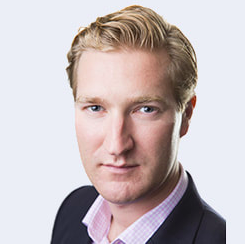
We’re very social animals here at Brandwagon, so we love getting to know the diverse people who drive our industry. Like unwrapping a gift, we often find that beyond the starchy Linkedin profiles and company biogs, there’s a great personality we seldom get a chance to see. So, playing to our delight in getting to know the movers and shakers in comms and marketing, we’re very pleased to bring you our very first Below the Fold with Matt Law .
Matthew Law CMO Telum Media
Matthew Law leads Business Development as CMO at Telum Media. Previously he was a Director at Bell Pottinger Asia in Singapore and was part of the team that launched that office in 2010 where he worked on accounts for many of Singapore and Malaysia’s largest companies. Before that he was in London with Cardew Group as a Financial PR. He co-founded Telum Media in 2013.
1. What are you best known for?
Amongst my friends in the UK being the guy who has spent 8 years in Asia with no sign of returning any time soon (much to their annoyance). Amongst my Singapore expat friends, probably being the guy who has lived in Singapore longer than most!
2. What’s the most interesting things about you?
Telum is the 5th business I have been part of setting up. You’ll have to check out my social profiles for the story on the others…
3. What are you most proud of?
I put all of my energy into everything I take on and never do things half-heartedly. That could be training for an ironman, driving our Business Development team at Telum into new markets, or having an evening out with friends!
4. Which one thing do you wish you’d done different?
When meeting students of all ages I always tell them that my biggest regret is leaving Edinburgh University and not really knowing what I wanted to do. This comes down to not having spent school and university holidays very wisely. I can’t stress the benefits of work experience or internships enough, even if they are only a few days long. As much as anything they teach you what you don’t want to do…
5. Who are your role models and mentors?
Definitely the two most influential are my mother, who juggles more business hats than anyone I know, and David Wynne-Morgan, Co-Founder of Bell Pottinger Asia (now Klareco Communications). David is the reason I originally moved to Singapore back in 2010. He still works a full day in London and at 87 can be found most evenings holding court as Chairman of 5 Hertford Street, with cigar always firmly in hand. The moral here is if you keep active you’ll live an extremely rewarding life.
6. What wouldn’t we learn about you from your resumé?
I studied Geology at University and wrote my thesis on the future of world oil and gas supplies. After a quick stint in the O&G industry as an analyst I turned my hand to the nightclub industry and launched a venue booking app in London.
7. What’s the best book you ever read?
I’m currently obsessed with James Clevell’s Asian Saga. It’s a series of six novels written between 1962 and 1993. The novels all centre on Europeans in Asia, and together explore the impact on East and West of the meeting of these two civilizations. Start with Tai-Pan about the early years of trade in Hong Kong.
8. What’s the biggest risk you’ve ever taken?
At 26 packing one bag and heading to Singapore, having not visited the country before, to join the team setting up Bell Pottinger Asia. The second is buying into Crypto currencies at the top of the market which didn’t work out so well… I now tell people it’s a long term hedge!
9. What’s the most important factor when you’re hiring someone?
I look for two critical things: Someone who has done their homework before turning up to an interview; and those that have a global perspective on life and business.
10. What is your next milestone for Telum Media?
It’s our 5th Anniversary next year so we look forward to celebrating with our clients and friends across Asia Pacific.
Matthew Law CMO Telum Media
Matthew Law leads Business Development as CMO at Telum Media. Previously he was a Director at Bell Pottinger Asia in Singapore and was part of the team that launched that office in 2010 where he worked on accounts for many of Singapore and Malaysia’s largest companies. Before that he was in London with Cardew Group as a Financial PR. He co-founded Telum Media in 2013.
1. What are you best known for?
Amongst my friends in the UK being the guy who has spent 8 years in Asia with no sign of returning any time soon (much to their annoyance). Amongst my Singapore expat friends, probably being the guy who has lived in Singapore longer than most!
2. What’s the most interesting things about you?
Telum is the 5th business I have been part of setting up. You’ll have to check out my social profiles for the story on the others…
3. What are you most proud of?
I put all of my energy into everything I take on and never do things half-heartedly. That could be training for an ironman, driving our Business Development team at Telum into new markets, or having an evening out with friends!
4. Which one thing do you wish you’d done different?
When meeting students of all ages I always tell them that my biggest regret is leaving Edinburgh University and not really knowing what I wanted to do. This comes down to not having spent school and university holidays very wisely. I can’t stress the benefits of work experience or internships enough, even if they are only a few days long. As much as anything they teach you what you don’t want to do…
5. Who are your role models and mentors?
Definitely the two most influential are my mother, who juggles more business hats than anyone I know, and David Wynne-Morgan, Co-Founder of Bell Pottinger Asia (now Klareco Communications). David is the reason I originally moved to Singapore back in 2010. He still works a full day in London and at 87 can be found most evenings holding court as Chairman of 5 Hertford Street, with cigar always firmly in hand. The moral here is if you keep active you’ll live an extremely rewarding life.
6. What wouldn’t we learn about you from your resumé?
I studied Geology at University and wrote my thesis on the future of world oil and gas supplies. After a quick stint in the O&G industry as an analyst I turned my hand to the nightclub industry and launched a venue booking app in London.
7. What’s the best book you ever read?
I’m currently obsessed with James Clevell’s Asian Saga. It’s a series of six novels written between 1962 and 1993. The novels all centre on Europeans in Asia, and together explore the impact on East and West of the meeting of these two civilizations. Start with Tai-Pan about the early years of trade in Hong Kong.
8. What’s the biggest risk you’ve ever taken?
At 26 packing one bag and heading to Singapore, having not visited the country before, to join the team setting up Bell Pottinger Asia. The second is buying into Crypto currencies at the top of the market which didn’t work out so well… I now tell people it’s a long term hedge!
9. What’s the most important factor when you’re hiring someone?
I look for two critical things: Someone who has done their homework before turning up to an interview; and those that have a global perspective on life and business.
10. What is your next milestone for Telum Media?
It’s our 5th Anniversary next year so we look forward to celebrating with our clients and friends across Asia Pacific.
"Love thy marketing neighbour", says Jeremy Hughes
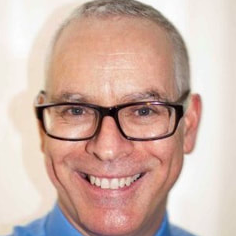
Many of you will know Jeremy Hughes, a consummate communications pro with an envious resumé stretching from London to Singapore. He has accrued deep experience working in multiple financial comms roles at London Stock Exchange, Citi, Deutsche Bank and BNP. He's currently lending his talents at Tata Communications. Jeremy is also an all-round great guy - wise and funny, a renowned grammar guru and occasional triathlete.
I was lucky enough to moderate the panel at this week’s Singapore Financial and Professional Services Network meeting and was able to participate in a very interesting and thought-provoking dialogue about a number of issues confronting corporate comms practitioners today.
Perhaps the most illuminating points came in response to a question from the audience. Our questioner, a long-term comms professional who earned his spurs in media relations and then, like many of us, widened his skillset to include internal and digital comms, wanted to understand how his peers worked – on a practical level – with colleagues in marketing. This topic had been touched on throughout the evening, mainly in connection with discussions about how digital comms are run and how they can be made to pay – since they are so obviously now an established part of the broad comms and marketing mix.
It very soon became clear that we all have ways in which not only is our daily work affected by the needs of marketing colleagues, but also that this is something that is more and more of a requirement. Years ago we would have sterile debates about whether comms was a sub-discipline of marketing or whether it’s a discipline all of its own. And we have worked in organisations where comms is set up according to one or the other of these models. Now it's going to come up in every strategy discussion we have.
What’s the answer? Well, our conversation revealed that the advent of digital channels, with their wealth of analytics, aren’t only providing comms with the longed-for data to help sharpen strategies and demonstrate ROI, but that our marketing colleagues are more and more in need of the skills comms brings to the table – especially the ability to create solid narratives and engaging copy.
If the two functions aren’t aligned formally and structurally, there is now more than ever a need to form close, co-operative relationships between them, which will ensure we’re really delivering value to the business. As our original questioner said, “we need to be grown-ups” for the good of our employers, as well as our own effectiveness at our jobs.
I was lucky enough to moderate the panel at this week’s Singapore Financial and Professional Services Network meeting and was able to participate in a very interesting and thought-provoking dialogue about a number of issues confronting corporate comms practitioners today.
Perhaps the most illuminating points came in response to a question from the audience. Our questioner, a long-term comms professional who earned his spurs in media relations and then, like many of us, widened his skillset to include internal and digital comms, wanted to understand how his peers worked – on a practical level – with colleagues in marketing. This topic had been touched on throughout the evening, mainly in connection with discussions about how digital comms are run and how they can be made to pay – since they are so obviously now an established part of the broad comms and marketing mix.
It very soon became clear that we all have ways in which not only is our daily work affected by the needs of marketing colleagues, but also that this is something that is more and more of a requirement. Years ago we would have sterile debates about whether comms was a sub-discipline of marketing or whether it’s a discipline all of its own. And we have worked in organisations where comms is set up according to one or the other of these models. Now it's going to come up in every strategy discussion we have.
What’s the answer? Well, our conversation revealed that the advent of digital channels, with their wealth of analytics, aren’t only providing comms with the longed-for data to help sharpen strategies and demonstrate ROI, but that our marketing colleagues are more and more in need of the skills comms brings to the table – especially the ability to create solid narratives and engaging copy.
If the two functions aren’t aligned formally and structurally, there is now more than ever a need to form close, co-operative relationships between them, which will ensure we’re really delivering value to the business. As our original questioner said, “we need to be grown-ups” for the good of our employers, as well as our own effectiveness at our jobs.

